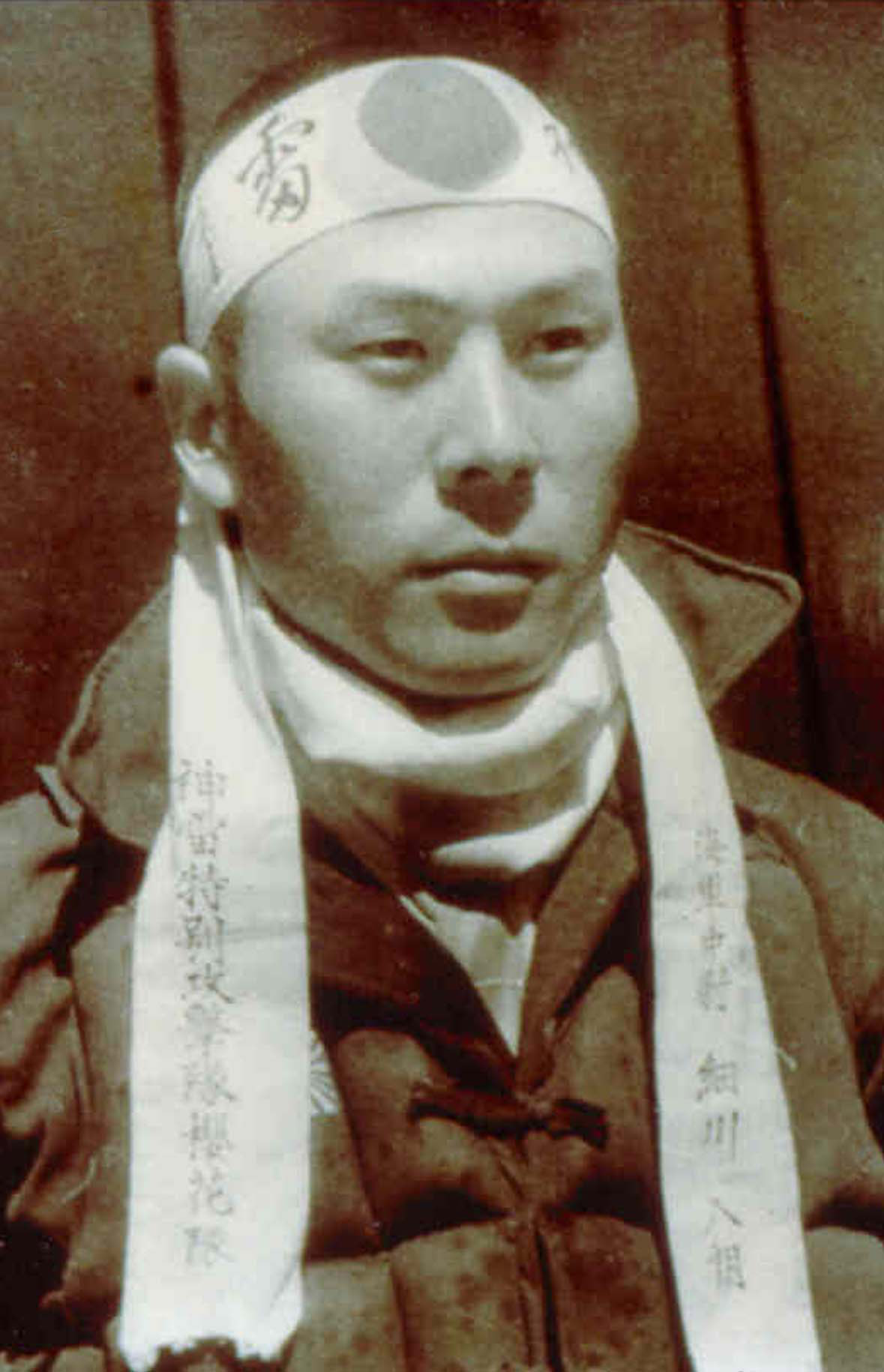
Kamikaze pilot Hoshikawa Hachiro(Roh Yong U)
60 years after World War II, a Kamikaze pilot's remains return to Korea Investigations are under way to find out what happened to Koreans who were put to work by the Japanese Army during the war years and who died outside Korea
TOKYO: It took 60 years, but the remains of a young Korean kamikaze pilot who died as a "Japanese hero" were finally returned to his homeland in June.
Roh Yong U perished in a suicide attack against a U.S. B-29 bomber on May 5, 1945. His rank got a double promotion to captain after he died. But, despite his hero status, his remains long stayed in limbo-labelled as "kin unknown" until his war buddies and others pursued his case.
This year marks the 60th anniversary of the end of World War II. Belatedly, Japan and South Korea have stepped up their efforts to collaborate on this vital issue left over from the war: repatriating the remains of conscripted Koreans.
Investigations are under way to track down what happened to Koreans who were put to work by the former Imperial Japanese Army and various Japanese companies during the war years, and who died outside of the Korean Peninsula.
Roh is the only former Imperial Japanese Army soldier or civilian employee to make it home so far.
According to sources at the Foreign Ministry and at the Ministry of Health, Labour and Welfare, a memorial service for Roh was held at the Yutenji temple in Meguro, Tokyo, on June 16. Officials and staff from the Japanese Government and the South Korean Embassy in Tokyo attended the service.
Roh's remains were flown to South Korea the same day and met at Kimpo International Airport by officials from the Korean Ministry of Foreign Affairs and Trade. The remains were then handed over to his relatives.The repatriation of Roh's remains was problematic, indicative of the inherent difficulties that can occur 60 years after a person's death.
Under the pre-war Soshi-kaimei ordinance that compelled Koreans to adopt Japanese family and given names, Roh had died as "Kiyoharu Kawada."
`Kin unknown'
After the war, the remains of Kawada went unclaimed. Labelled "kin unknown," they were temporarily enshrined at the Yutenji temple, together with the remains of another 1,135 former Imperial Army soldiers and civilian employees.
It was not until the 1990s when ethnic Koreans living in Japan and Roh's former fighter pilot classmates began a search that led to Roh's bereaved family members in South Korea.
Progress in the case was slow. There were mixed feelings about Roh having sacrificed his life fighting for Japan and dying a hero's death as an officer of the Imperial Japanese Army.
0Neither the South Korean Government, nor Roh's family members were too keen to accept the remains of a supposedly pro-Japan, anti-Korean national.
However, at a Japan-Korea summit meeting held last December, South Korean President Roh Moo Hyun requested Prime Minister Junichiro Koizumi's cooperation in tracking down and returning the remains of Korean conscripts who had died for Japan.
Family members of the Korean kamikaze pilot were contacted again. This time, they proved more receptive.Meanwhile, the Japanese Government began trying to ascertain the status of Korean remains by sending inquiries nationwide to local governments, religious organisations and companies. An official said the Foreign Ministry hoped to convey the results to the Korean Government by the end of August.
Not easy
However, the official added, returning remains to Korea will not be easy. There are few remaining clues to help verify remains or locate relatives.
Also, bereaved families might demand a full explanation of the circumstances regarding the deaths, or make requests for formal apologies and compensation from the Japanese Government.



No comments:
Post a Comment